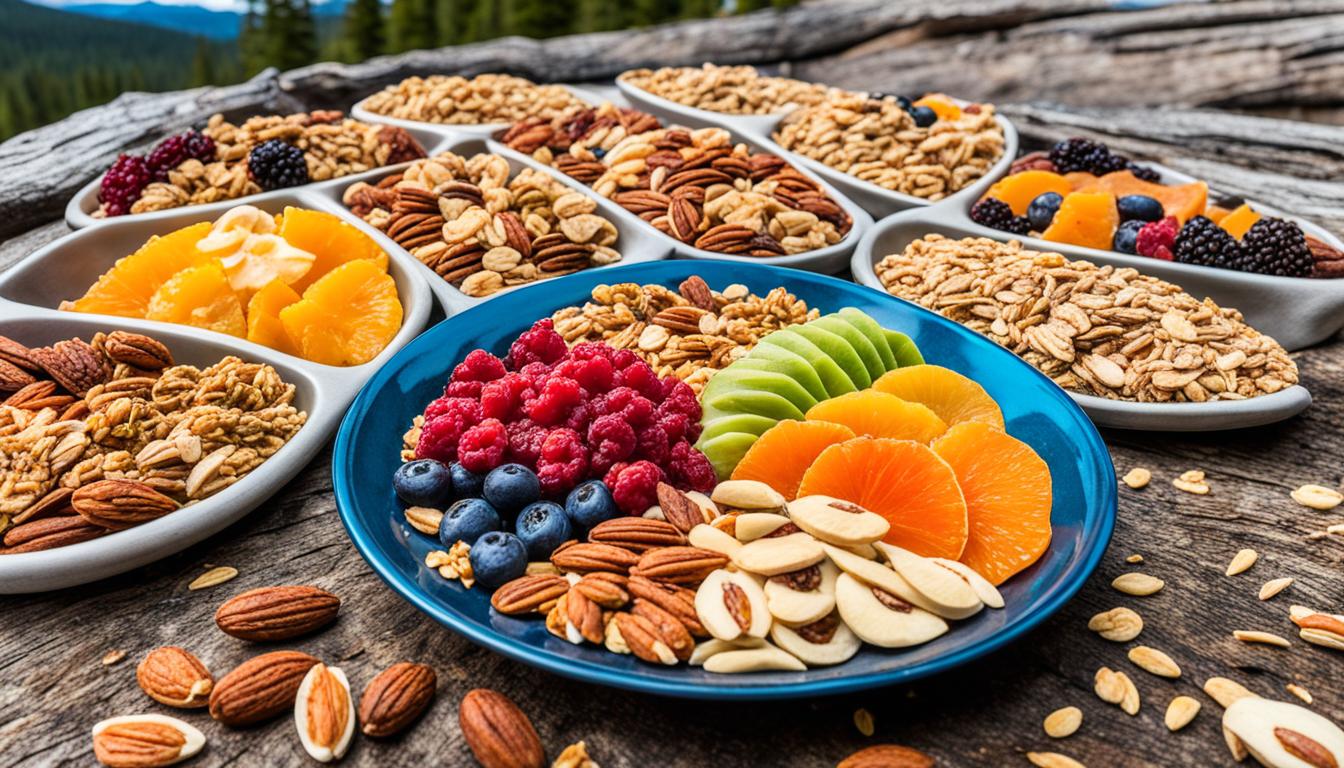p {
font-family: Arial, sans-serif;
font-size: 16px;
line-height: 1.5;
margin-bottom: 20px;
color: #333333;
text-align: justify;
}
h1 {
font-family: Arial, sans-serif;
font-size: 24px;
font-weight: bold;
margin-bottom: 20px;
color: #333333;
}
h2 {
font-family: Arial, sans-serif;
font-size: 20px;
font-weight: bold;
margin-bottom: 10px;
color: #333333;
}
When planning a backpacking trip, one of the most important considerations is what food to bring along. The food should be nourishing, lightweight, and easy to prepare. It should also provide enough calories to sustain you during your outdoor adventures. Here are some tips and ideas for choosing the best backpacking food:
How Much Food Should I Take Backpacking?
Have you ever wondered how much food you should bring on your backpacking adventure? Is there a magic formula to calculate the perfect amount? Let’s find out.
What Kind of Food Should I Take Backpacking?
Are you tired of the same old trail mix and energy bars for your backpacking trips? What if we told you that there are delicious and nutritious alternatives? Get ready to upgrade your outdoor menu!
How Much Food Should I Take Backpacking?
When planning a backpacking trip, one of the essential considerations is how much food you should bring along. The amount of food to pack depends on several factors that influence your food intake and overall energy expenditure. It’s crucial to carefully plan your meals to ensure you have enough sustenance to fuel your outdoor adventures.
The recommended amount of food to bring on a backpacking trip is around 1½ to 2½ pounds per person per day, providing approximately 2,500 to 4,500 calories. However, it’s essential to take into account various factors that can influence your specific dietary needs.
Factors Influencing Food Intake
- The intensity of your activity: If you’re planning a more strenuous hiking trip with long distances and steep terrain, you’ll need to consume more calories to sustain your energy levels. Conversely, if you’re embarking on a leisurely backpacking trip with light activity, you may require fewer calories.
- Your size and weight: Larger individuals generally require more calories to maintain their energy levels. If you have a higher basal metabolic rate or engage in physically demanding activities, you may need to increase your calorie intake.
- The number of calories burned: Depending on your activity level, you may burn a significant number of calories during your backpacking trip. It’s essential to replenish these calories to avoid fatigue and maintain optimal performance.
- The duration of your trip: Longer backpacking trips necessitate more food to sustain you throughout the journey. Ensure that you have enough food to last the entire duration of your adventure.
It’s crucial to consider these factors when planning your meal quantities and ensure that you have enough food to meet your specific needs. It’s better to carry a little more food than to risk running out of fuel during your backpacking trip.
What Kind of Food Should I Take Backpacking?
When it comes to choosing food for your backpacking trip, there are a few key factors to consider: portability, weight, and nutritional value. The last thing you want is to be weighed down by heavy, bulky items. Look for portable and lightweight foods that won’t take up too much space in your backpack, allowing you to pack efficiently and easily navigate the trails.
While it’s important to prioritize practicality, don’t forget about the importance of treating yourself to comfort foods during your adventure. These can provide a morale boost and enhance your overall enjoyment. Think of your favorite snacks and treats that are both lightweight and bring you joy. A well-deserved indulgence can make all the difference when you’re out in the wilderness.
Consider the shelf life and convenience of different food options. Dehydrated and freeze-dried meals are popular choices among backpackers due to their lightweight nature and long shelf life. They also require minimal preparation, making them ideal for quick and easy meals on the go. Don’t forget to pack a variety of spices for backpacking, such as salt, pepper, and other seasonings, to add flavor and turn a simple meal into a satisfying feast.
Lastly, staying hydrated is crucial while backpacking. In addition to water, explore hydration options like electrolyte powders or hydration tablets to replenish essential minerals lost through sweat. These can be a game-changer in helping you stay energized and replenished throughout your journey.
